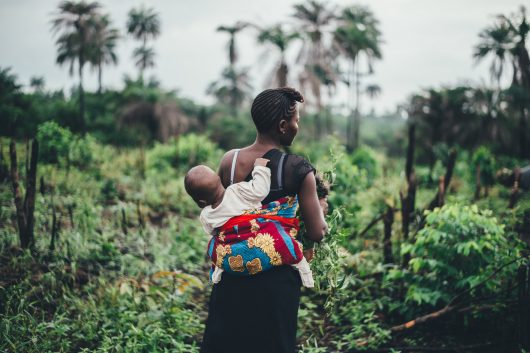How to Reduce Poverty in Africa – Plant a Tree

A recent University of Illinois study indicates that including trees in the agricultural industry has the potential to reduce poverty in Africa. Lead researcher Daniel Miller reported that one-third to half of rural farmers in Ethiopia, Malawi, Nigeria, Tanzania and Uganda incorporate trees into their farming plans. Miller explained that within the target group, trees alone contributed 17% to the annual household income. He acknowledged that the trees were a very important source of economic benefits for these households. He discovered that the most popular tree types were fruit trees and coffee trees. Timber and fuel-producing trees were also found, but only five percent of the farms studied contained them.
Colonial Law No Longer a Stumbling Block
In addition to using satellite images and comprehensive surveys, Miller’s study relied heavily on personal interviews from farmers in the five countries.
Miller’s research delved into the ramifications of an old colonial law in Nigeria concerning tree ownership. He reported that the old law gave the government the right to claim any tree as being within the domain of forestry. As a result, farmers shied away from having trees on their farms because authorities would have a legal right to enter their land and claim the trees for the central government.
Miller indicated that the law in Nigeria recently changed to allow farmers more control of the trees on their land. He explained that this was a clear case of where previous government intervention adversely affected the decisions of landowners. Nigerian farmers are beginning to incorporate more trees into their farms, albeit slowly. Miller reported that of the five countries studied, the prevalence for trees on Nigerian farms was the lowest, at 16%.
Climate Change Mitigation
The weight of climate change is also a major consideration in the effort to reduce poverty in Africa. Miller’s results indicate worth for increased attention on farms incorporating more trees, especially considering food security and poverty-related policy concerns. Miller reports, “Trees are climate smart because they aren’t as fragile as agricultural crops are to extreme shifts in climate…trees can continue to produce when you might have a crop failure due to a drought.”
Diverse Sustainability for Farmers
Miller’s study found that farmers incorporating trees into their agricultural plans had greater food security. In his report, the uses of products harvested from trees included self-consumption, cash income, storage, and even gifts.
With the hope to reduce poverty in Africa at the forefront, Miller remains optimistic about the potential of future studies. “We see significant scope for future research…to gain a complete picture of the dynamics of rural livelihoods in Africa over time.”
– Gisele Dunn
Photo: Flickr
